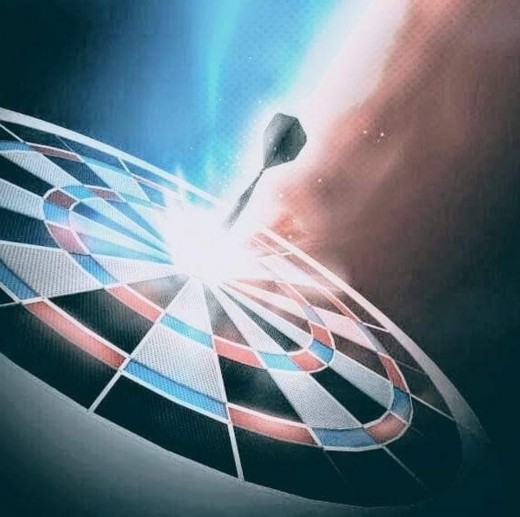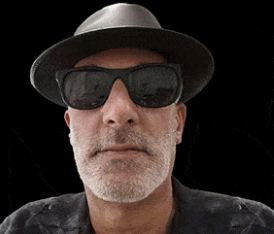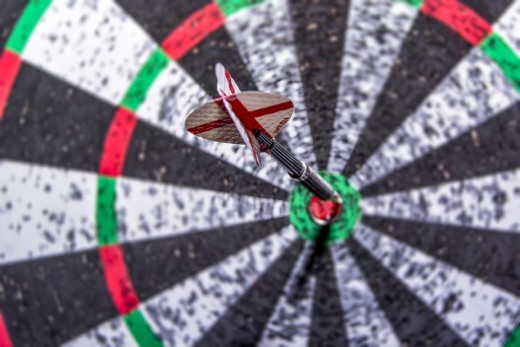May 1, 2005
Column 181
Start Young
“Looking for pretty young girl who likes football (Go Eagles!) and basketball (AI is da Man!), Blink 182, Rodney Mullen, and Darin Young, going out for pizza, chillin’, can do a “360 Flip” and is willing to play around the clock. Spitting okay.”
Now, before someone out there reports me as a pedophile (some bastard once threatened to blow up my house because of something I wrote about Doreen and Daryl Berry’s daughter, Crissy), let me explain…
I didn’t place the personal advertisement above. I’ve given up on the frickin’ Eagles. I don’t care if Alan Iverson can toss in sixty points a game, as he did just the other night; I think he should be in jail. Until a week ago I’d never heard of Blink 182 or a 360 Flip. I prefer burgers to Dominos. And as for spitting, well, for the moment, I’m not touching that one with a ten-foot pole. Read on…
No, the advertisement above is a little something I crafted for a teenager I met recently from Rockledge, Pennsylvania, just outside the Philadelphia limits. He’s a good kid and apparently quite The Man when it comes to the ladies. I thought the advertisement might be something he could use. It’s the least I could do for him, considering he risked being interviewed for Dartoid’s World.
It might also be something his mother and father shove up my ass.
Alex “Hurricane” Broderick, is a fourteen-year-old darts player and one of the best of his age in America. In August 2004 in Connecticut, he won $500 for college by finishing in the top eight at the American Darts Organization’s (ADO) National Youth Championships. Just five months earlier, he walked off with three trophies in Virginia Beach (including two first place finishes — in cricket and in the youth/adult event, where he paired with Darin Young). In January 2005, he made it to the stage for the youth finals, and won, at the Pennsylvania Open. So I bought him a couple of beers.
I learned a lot watching him throw. Like, for example, when you have thirty-two left on the board, it’s a good idea to throw at the double sixteen. I learned even more talking to him. I’m a great fan of the ADO’s youth program and was interested in learning what impact participating in it had on the kids. I tried to get an interview with Ashley Stewart, daughter of darters, Tom and Debbie Stewart, and one of the best young female shooters in the country, but they wouldn’t let me near their little girl. I can’t understand it.
So I drew up a list of questions and called him on the phone. Here’s what I found out. First, the really important stuff…
Like everybody else from the Philadelphia area, Alex is a football and basketball fanatic. He plays both sports and doesn’t seem to mind that Alan Iverson is deranged. Alex is also a skateboarder. In fact, I think he might be the one of the little bastards who ran me down in the Costco parking lot just last weekend. It turns out that an “360 Flip” (as exciting as it sounds) is just a skateboarding maneuver. It involves “jumping with the board, doing a 360 and then, a kick-flip,” which I think is teenage code for “killing yourself.” Rodney Mullen is some sort of a skateboarding champion. And Blink 182 is either a new kind of soda or a rock band. I can’t remember.
So, as you can tell, the interview was going extremely well. I was learning a lot about darts and how participating in the ADO’s youth program was improving the lives of our children, teaching them poise, self-confidence, how to add and subtract, smoke cigarettes and drink beer.
I moved to a secondary list of questions instead, to draw the kid out…
“So who’s this dude, Darin Young?”
“I look up to him — also Phil Taylor and my dad.”
“Why do you look up to Darin?”
“He’s tall.”
“Can your dad beat Darin?” Alex just laughed.
Eventually, I learned that Alex (nicknamed “Hurricane” after Hurricane Alex) started throwing darts at the age of eleven. His dad, Mike Broderick, got him involved and he’s (Alex, not Mike) been playing in Philadelphia’s youth league for three years. He practices a lot (“but not as much as I should”), working mostly on the cricket numbers and doubles. He “doesn’t like doubles” but throws “around the clock” to improve his accuracy at hitting them. His nemesis in the sport is sixteen-year-old Ryan McCafferty from Virginia Beach. He hates the double one.
Alex is in eighth grade. He likes math “but darts doesn’t help in algebra.” His least favorite subject is reading, though he is currently working his way through one of the great classics, a Child Called “It.” His favorite television show is 24. He has three brothers and a rabbit, creatively named Hoppy. I think he prefers his rabbit to his brothers because it “doesn’t ask lots of stupid questions.”
So, I was starting to get somewhere, feeling more confident in my interviewing skills. I moved back to my primary set of questions, designed to elicit the good stuff, the inner mind, the thoughts, the things even Alex’s closest friends and family don’t know — the things people want to know about a young boy who aspires to be a “future darts champion of the world.” Over the years, I’ve been asked some of these very same questions so I know they are good.
“Okay Alex: what’s the one thing nobody knows about you, that your best friend and even your parents would be surprised to learn?”
Silence.
“Maybe I better explain, Alex. For me, and this is the first time I have ever told this to anybody — I am a lesbian.”
Silence.
“Okay Alex, let’s try another question. What’s the most embarrassing thing that’s ever happened to you?”
“Well, I tripped once. Another time I threw at the double one for an hour.”
“Alex, let me try explaining the question. Once, when I was about your age, some of my friends and I were playing at a construction site. They were building a housing subdivision. Most of the houses were framed and the electricity was wired. So, we all peed in the electrical sockets, caused them to spark and flame and one of the houses started on fire. This was really embarrassing because we almost blew off our you-know-what’s.”
Silence.
“What’s the worst thing you’ve ever done that your parents don’t know about?”
“Well, sometimes I spit, but they know that.”
“What would you do if you won a million bucks?”
“I’d give it to my dad. And I’d go to college.”
Screw it. Back to the second list of questions…
“Tell me about the Youth Nationals, Alex. How did you come up with the money for the entry fee? How did it feel to be there? Were you nervous? Top eight is great, but could you have done better? What was the biggest mistake that you made?”
Alex explained that he raised his entry fee himself by selling white women to Alan Iverson.
No! I’m pretty sure he keeps them to himself.
But he did sell fifty-fifty tickets and do other things of that sort. People who believed in him and saw his talent chipped in. His parents helped out.
Before the tournament he practiced harder and longer than usual, working especially on the horrible double one, just in case. His parents bought him a new pair of black dress shoes just for the occasion and because that’s the rule.
When he finally arrived at the tournament hall he felt “nervous, but in a great way.” But once he got to the line the nerves receded. He threw well, but “too fast sometimes.” He threw “lots of tons” and “did okay at the doubles” but his feet hurt.
“It was the shoes. I know I could have done better if I could have worn regular shoes.”
“So, will you compete at the nationals next year?”
Alex’s answer was immediate and emphatic. “Yes!”
What will you do differently to increase your chances of doing better then top eight?”
“Practice more. And not wear the same shoes.”
I thanked Alex for talking with me, promised (but lied) that I wouldn’t embarrass him and asked if I could pose just one last question.
“Can I ask you just one more question Alex? Do you promise to answer, no matter what the question is?”
“Yes sir.”
“Sir? What do you mean, Sir?”
“You’re older than me. I’m supposed to call older people that.”
“How old do you think I am?”
“We’ll, you’re older than my dad.”
“I’m fifty-one. Here’s my last question. You’re fourteen. When you’re my age, I’ll be eighty-seven. What do you think I’ll be doing?”
Silence again on the phone.
“Alex! You promised to answer. What do you think I’ll be doing when I’m eighty-seven?”
Silence.
“Alex?”
“I think you’ll be dead.”
From the Field,
Dartoid




